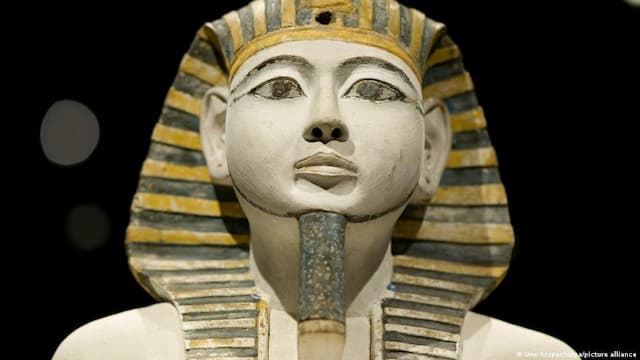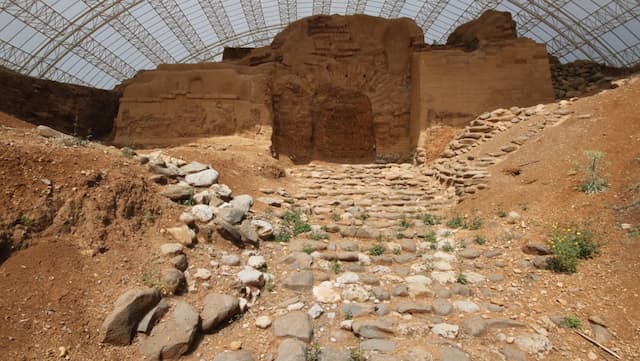Why doesn’t God sort it out? (Matthew 13:47-50)
If God is all-powerful and all-loving, why doesn’t he sort out injustice now?

Open Matthew 13:47-50.
Why is the world such a mess if it’s God’s kingdom? How can so much evil and injustice exist in the kingdom of God?
Why doesn’t our heavenly king sort out his earthly realm? Is this really the best God can do?
That’s no theoretical question. Ask the people in pain. Ask the parents of the 17 killed at Marjory Stoneman Douglas High School in Parkland, Florida in February. Why doesn’t God act? Philip Yancey calls it, “the question that never goes away.”
Megaphones blare, “What do we want? Justice! When do we want it? Now!”
King Jesus explains to his hurting people, “Not so fast. God will sort out his world, but not yet.”
It’s not a popular answer. Some of his subjects are angry: “If God has the power and he cares, he can’t let this go on. Is he impotent, or doesn’t he care?”
Jesus told a story about a fishing trip. They took a huge net, the kind you spread out to trawl between two boats. The net garnered all sorts of fish indiscriminately. Eventually the time came to pull the big net out onto the shore, and that’s when they sat down to sort out their catch. They collected the fish worth keeping, and the worthless ones they threw away.
Jesus said God’s realm is like that. Within it, you find all sorts of people, good and bad, in close proximity. The fish can’t sort themselves out. They have to wait until the one who’s in charge decides it’s time to pull in the net.
It’s not that God doesn’t know, or doesn’t care. He will, but he’s waiting for the right time. He won’t sort it out until the end of the fishing expedition. It’s not up to the fish to separate themselves; God will give that task to his angels at the end of the era. There will be a great sorting out. The bad ones will be destroyed in the fiery furnace with great lament and regret, so only the right ones enjoy the king’s reign forever.
Human rulers don’t have that kind of patience. Mortal rulers only have a brief time to impose their will. The one who reigns forever is in no hurry to force his subjects into submission, to make them behave. He’s waiting for the harvest to grow in his field. He tolerates the weeds rather than damage the wheat. His mustard seed is still growing into the tree that fills the world. Like yeast working through the dough, his kingdom is still rising.
Yes, there are good and bad fish in God’s lake. He already has the net in the water, and he will draw it in. In the end, only the good fish remain. But for now, the good fish and the bad fish must live together in God’s net.
And it hurts.
Matthew 13:47-50 (my translation)
47 Again, the kingdom of heaven is like a net that was cast into the sea and pulled in all sorts. 48 When it was full, it was drawn up onto the shore. They sat down and collected the good ones into baskets, but the worthless ones they threw away. 49 That’s how it will be when the era reaches fulfilment. The angels will go out and separate the evil ones from among the right ones. 50 They’ll toss them in the fiery furnace, the place of lamenting and grinding teeth.
What others are saying
N. T. Wright, Scripture and the Authority of God (London: SPCK, 2005), 26–27:
Without the problem of evil, there would be no need to speak of, pray for, or invoke God’s kingdom or authority; it would be apparent as a present reality. To speak of God’s kingdom is thus to invoke God as the sovereign one who has the right, the duty and the power to deal appropriately with evil in the world, in Israel and in human beings, and thereupon to remake the world, Israel and human beings.
Donald A. Hagner, Matthew 1–13, Word Biblical Commentary (Dallas, TX: Word, 1998), 400:
In the present era, the evil persons are allowed to live together with the righteous — in their midst — even within that manifestation of the kingdom known as the Church. The dragnet of the kingdom thus includes a mixture of both good and evil. That such circumstances could exist in the era of the kingdom itself was nothing less than astonishing — something indeed worth calling one of “the mysteries of the kingdom.” That good and evil could be located within the net of the kingdom seemed equally strange, no doubt.
Linda McKinnish Bridges, “Preaching The Parables Of Jesus In Matthew’s Gospel In Ordinary Time: The Extraordinary Tales Of God’s World” in Review and Expositor 104:2 (2007): 345:
Conventional wisdom maintains that one can determine who belongs to the net and who must leave the net. The way of the world suggests that we have full power of discrimination, that we can determine who belongs to God’s world and who does not. Jesus’ parable teaches us that this is not the way in God’s world.
Ulrich Luz, Matthew: A Commentary, Hermeneia (Minneapolis, MN: Augsburg, 2001), 284:
Here too the world, with good and evil people in it, is the world of the Son of Man or of God. It is not that the righteous are transferred by the angels into heaven but that the evil are removed from the earth.
[previous: What’s the value of God’s reign?]
[next: Trained for kingdom business]
Seeking to understand Jesus in the terms he chose to describe himself: son of man (his identity), and kingdom of God (his mission). Riverview College Dean
View all posts by Allen Browne











